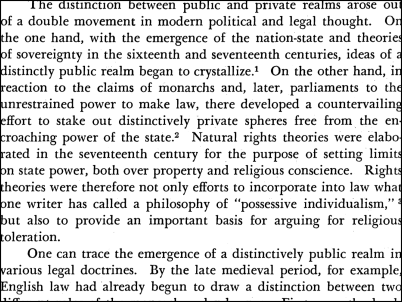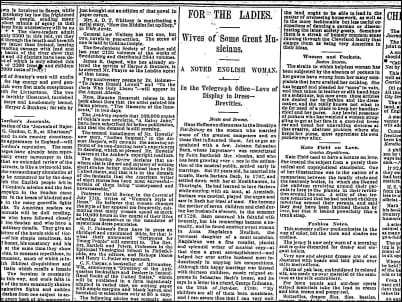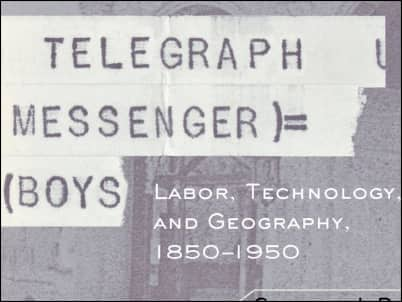Page 1 of 14
The home is about more than property
 In American law, the home is a sacred space. This sanctity is deeply connected to old the English common law and the high value placed on private property—but the special nature of the home in the United States goes further than mere property rights.
In American law, the home is a sacred space. This sanctity is deeply connected to old the English common law and the high value placed on private property—but the special nature of the home in the United States goes further than mere property rights.
July 2018 / 10 min.
Morton Horwitz on the public-private distinction (1982)
 Legal historian Morton Horwitz wrote, “The distinction between public and private realms arose out of a double movement in modern political and legal thought.” He concluded that the distinction was breaking down as “private institutions were acquiring coercive power that had formerly been reserved to governments.”
Legal historian Morton Horwitz wrote, “The distinction between public and private realms arose out of a double movement in modern political and legal thought.” He concluded that the distinction was breaking down as “private institutions were acquiring coercive power that had formerly been reserved to governments.”
May 2018 / 5 min.
“Women and Pockets” (1885)
 “The straights to which helpless woman has been subjected by the absence of pockets in her gowns have wrung from her many complaints that have availed her nothing.”
“The straights to which helpless woman has been subjected by the absence of pockets in her gowns have wrung from her many complaints that have availed her nothing.”
October 2017 / 1 min.
The telegraph and the domestic home
 “American District Telegraph Company was originally conceptualized as a business service, but it quickly began to sell itself as a service for the home as well.”
“American District Telegraph Company was originally conceptualized as a business service, but it quickly began to sell itself as a service for the home as well.”
October 2017 / 2 min.
Locke: “where there is no law, there is no freedom”
 In 1689, John Locke wrote that “the end of law is not to abolish or restrain, but to preserve and enlarge freedom.”
In 1689, John Locke wrote that “the end of law is not to abolish or restrain, but to preserve and enlarge freedom.”
October 2017 / 2 min.
Thoughts on Meyer v. Nebraska and its connection to Griswold v. Connecticut
 In the 1923 case of Meyer v. Nebraska, which grew out of the anti-German sentiment of World War I, the Supreme Court “upheld the right of parents to direct the upbringing and education of their children by striking down … a state statute prohibiting the teaching of any modern language other than English in any public or private grammar school.” How does this relate to Griswold v. Connecticut, which created a “right to privacy” (at least in terms of marital relations)?
In the 1923 case of Meyer v. Nebraska, which grew out of the anti-German sentiment of World War I, the Supreme Court “upheld the right of parents to direct the upbringing and education of their children by striking down … a state statute prohibiting the teaching of any modern language other than English in any public or private grammar school.” How does this relate to Griswold v. Connecticut, which created a “right to privacy” (at least in terms of marital relations)?
August 2017 / 4 min.
Griswold v. Connecticut, privacy, and the home
 Griswold v. Connecticut is one of the foundational cases of a constitutional “right to privacy” in the United States – though, as many have pointed out, the word “privacy” does not appear in the text of the Constitution itself. The precedent in the majority opinion by Justice Douglas is nonetheless strong and deeply rooted in tradition.
Griswold v. Connecticut is one of the foundational cases of a constitutional “right to privacy” in the United States – though, as many have pointed out, the word “privacy” does not appear in the text of the Constitution itself. The precedent in the majority opinion by Justice Douglas is nonetheless strong and deeply rooted in tradition.
August 2017 / 5 min.
The Supreme Court and James Q. Whitman’s “The Two Western Cultures of Privacy: Dignity Versus Liberty”
 James Q. Whitmore reveals an interesting contrast: whereas American law and rhetoric is strongest when privacy is approached as a protection against state interference, privacy protections in Germany and France are at their peak when the dignity of the individual is at stake. Justice Kennedy, interestingly, emphasizes this more European approach in a number of his Supreme Court decisions.
James Q. Whitmore reveals an interesting contrast: whereas American law and rhetoric is strongest when privacy is approached as a protection against state interference, privacy protections in Germany and France are at their peak when the dignity of the individual is at stake. Justice Kennedy, interestingly, emphasizes this more European approach in a number of his Supreme Court decisions.
August 2017 / 6 min.
Publishing leaked materials: the Pentagon Papers case
 Within a month of taking office, President Donald Trump announced his desire to go after “leakers” who have helped embroil his administration in controversy. He also declared many traditional news outlets to be “enem[ies] of the American People!” What does this mean for those who publish such material?
Within a month of taking office, President Donald Trump announced his desire to go after “leakers” who have helped embroil his administration in controversy. He also declared many traditional news outlets to be “enem[ies] of the American People!” What does this mean for those who publish such material?
July 2017 / 5 min.
Promoting involuntary sterilization: early hints of problems in the 1930s
 A 1930s article published in The Journal of Heredity, “Beginnings of Sterilization in America,” is notable for the way it portrayed sterilization, particularly when it is compared to an earlier account of the same interview with Dr. Sharp that formed the basis of the article and that has been preserved in the archives of California’s Human Betterment Foundation.
A 1930s article published in The Journal of Heredity, “Beginnings of Sterilization in America,” is notable for the way it portrayed sterilization, particularly when it is compared to an earlier account of the same interview with Dr. Sharp that formed the basis of the article and that has been preserved in the archives of California’s Human Betterment Foundation.
February 2017 / 10 min.